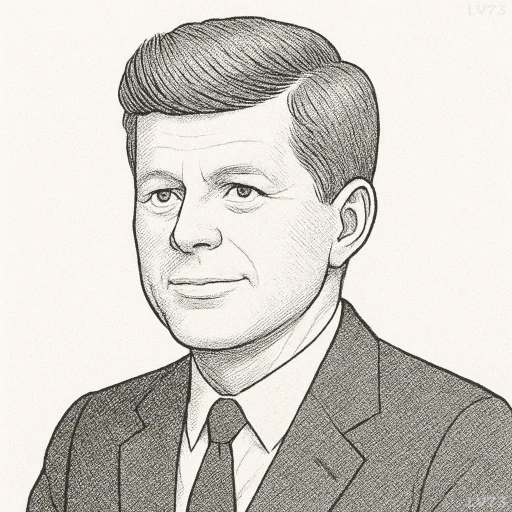“I am the Democratic Party’s candidate for president who happens also to be a Catholic. I do not speak for my church on public matters – and the church does not speak for me.”

- May 29, 1917 – November 22, 1963
- American
- Politician
table of contents
Quote
“I am the Democratic Party’s candidate for president who happens also to be a Catholic. I do not speak for my church on public matters – and the church does not speak for me.”
Explanation
This statement, made by John F. Kennedy during his 1960 presidential campaign, directly addresses concerns regarding his Catholic faith and its potential influence on his ability to govern as president. At the time, there was widespread concern among some Americans—especially Protestants—that a Catholic president might be unduly influenced by the Vatican or the Church’s teachings in making political decisions. This issue was a source of tension in the campaign, with some even suggesting that a Catholic president might prioritize the interests of the Catholic Church over those of the nation.
Kennedy’s words were designed to assuage these concerns by emphasizing the separation between his religious beliefs and his role as a political leader. By asserting that he would not “speak for his church on public matters,” he made it clear that his decisions as president would be guided by his commitment to the Constitution and the needs of the American people, not religious doctrine. His statement also reinforced the idea that the church and the state should remain separate, a foundational principle in the U.S. Constitution.
This statement is still relevant today, particularly when issues of religious identity and public service intersect. It serves as a reminder of the importance of religious freedom and the need for elected officials to maintain the independence of their personal beliefs from their official duties. In modern politics, questions about how faith influences policy decisions remain significant, and Kennedy’s assertion that one can be both deeply religious and an effective leader in a pluralistic society continues to resonate. His words also underscore the idea of personal integrity—that public officeholders must act according to their oaths of office and public responsibilities, rather than allowing any single external influence, religious or otherwise, to dictate their actions.
Would you like to share your impressions or related stories about this quote in the comments section?


